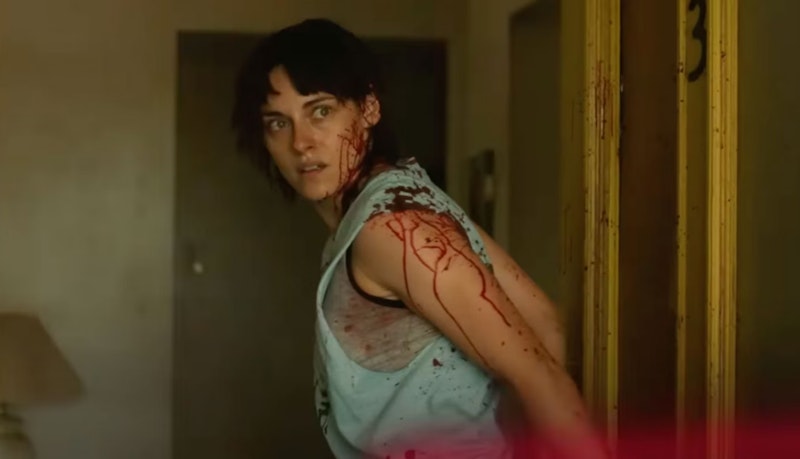Telltale sign of a healthy American cinema: two movies with suspiciously similar premises and plots are released within months, weeks, days of each other. You know Antz and A Bug’s Life, Armageddon and Deep Impact, Red Eye and Flightplan, and if you were around for the Oscars in 1985, maybe you remember three films about women and their failing farms: Country, The River, and Places in the Heart. And even if you don’t remember any of that, you’ve probably heard a misquoted snippet of Sally Field’s Oscar speech for that last movie: "I can't deny the fact that you like me—right now, you like me!”
But maybe that moment has passed, too. Maybe all you can remember is Emma Stone looking horrified when she won for Poor Things—and now that awards season is over, the only bit that’s looking to stick around is Jonathan Glazer’s acceptance speech for The Zone of Interest, wherein he mildly condemned the insane regime running Israel right now. That’s the only piece of the show still talked about, which means it’s by some distance the most “important” thing to happen at the Oscars since Michael Moore said we were living in “fictitious times” in 2003. Whatever you think of him now or then, he was right.
Last month, I reviewed Ethan Coen’s directorial debut Drive-Away Dolls, co-written with his wife Tricia Cooke; it’s a much more impressive and exciting solo outing than his brother’s The Tragedy of Macbeth, one of only a handful of movies I’ve ever almost fallen asleep in, and it’s good to know that they’ll be back soon with another short nouveau grind house movie called Honey Don’t this time next year. For now, we have Love Lies Bleeding, the other lesbian crime movie that had the good/bad luck of coming out after Drive-Away Dolls. Directed by Rose Glass and co-written with Weronika Tofilska, Love Lies Bleeding can’t match even one Coen brother on the merits of its script, casting, or attitude.
This is a tall order: the Coen Brothers’ debut Blood Simple came out 40 years ago, while Glass is only 33—this is her second film; her first, Saint Maud, was released in the fog of the pandemic. Love Lies Bleeding is a much better film than Saint Maud, one with far more moving parts and places to go. Kristen Stewart plays a gym manager in 1989 Albuquerque; her dad is Ed Harris, career criminal with all local police under his control; Jena Malone’s her sister, and Dave Franco her asshole brother-in-law. Stewart’s gay and hates her dad—not because he’s homophobic, but because she thinks he killed her mom. Katy O’Brian walks into Stewart’s gym one day after screwing a stranger (Franco) in the parking lot. Stewart introduces her to PED’s, and she becomes addicted, popping veins like The Hulk.
Love Lies Bleeding made me wary at first, with anachronistic lines like “Your body, your choice,” but it’s consistently hard to predict and genuinely weird for such a big movie. There are leaps and bits of magical realism that were really refreshing, and while you could call the ending a cop-out, it’s just dumb and obvious enough to work. It’s also a surprisingly nasty movie, one with a firmer grip on its tone than many American counterparts. Glass doesn’t just go for gore, she challenges the audiences and goes for laughs that would scare most investors out of the room. Two moments that made me howl with laughter: Stewart punching her already battered sister’s face in, and choking out that girl Daisy (Anna Baryshnikov) when she somehow wakes up from a gunshot to the head.
I was stunned by how much negative criticism Drive-Away Dolls received, and dismayed by how many writers are more eager to treat Love Lies Bleeding with kid gloves. The former is a much better movie, but they’re both merely excellent programmers, silly and violent films that can hold up a weak month like February or March. The violence and nihilism of both, particularly Love Lies Bleeding, feel essentially 2020s, post-superhero. Forget Emerald Fennell, Rose Glass is the millennial British director to pay attention to.
—Follow Nicky Otis Smith on Twitter and Instagram: @nickyotissmith

